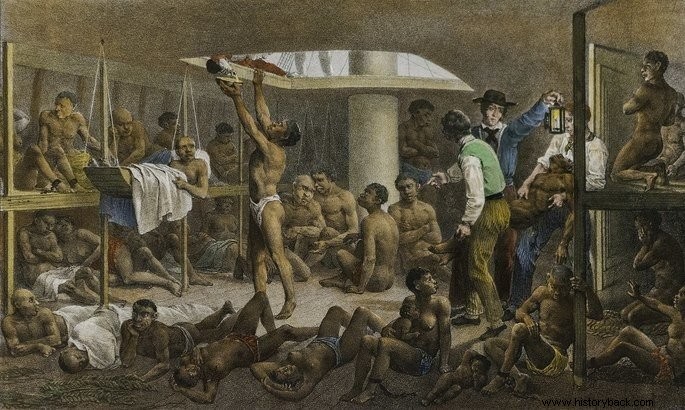What is racial democracy?
Racial democracy relates to an ideal social structure in which all citizens, regardless of their race or ethnicity, have the same rights and are treated in the same way.
The term democracy has its origin in ancient Greece and in its form of socio-political organization. Thus, a restricted class of citizens was supported by the principles of isonomy (equality before the laws) and isegoria (equality of political participation).
In this way, racial democracy is an abstraction based on the Greek ideal. It assumes two modes of interpretation:a goal to be reached or a myth that masks the contradictions and injustices present in society.
In Brazil, the term is used as an opposition to the idea of racial discrimination that requires blacks and whites to perform different roles within the social structure.
The Myth of Racial Democracy in Brazil
The term "myth" alludes to a fable or fantasy. So, the myth of racial democracy in Brazil is based on a false idea of miscegenation and racial integration taken as an unequivocal indication of harmony and equality between different ethnicities.
Therefore, Brazil would contrast with other places like the United States and South Africa, which for a long time had policies of racial segregation.
In Brazil, since the abolition of slavery in 1888, it has been assumed that everyone, regardless of their race or origin, must be treated equally, in complete equality before the laws.
In this way, the idea was developed that existing inequalities are based on strictly social, not racial, conditions.
According to authors who focus on racial democracy as a myth in Brazil, isonomy is not the only factor that guarantees racial democracy.
Policies of historical reparation are needed, which seek to bring racial issues closer to the objective of social justice and true racial democracy.
On the issue of social democracy in Brazil, Adilson Moreira, a specialist in anti-discrimination law, draws attention to the fact that the miscegenation of the Brazilian people is not present in the layers of state power.
For the author, political decisions remain under the control of an economic and racial elite (white). Thus, laws need to consider the racial inequalities existing in the social structure so that they can effectively guarantee equity and democracy.
Gilberto Freyre and the Formation of the Brazilian People
The socio-historical formation of Western societies is based on a Eurocentric vision. European technical development made possible its maritime expansion and the conquest of territories in Africa and the Americas.
The colonization processes formed the American continent which, from the European point of view, assume a character of progress and benefit for humanity in its entirety.
However, there is the perspective that the colonies were formed from the subjugation of the original peoples of the Americas (indigenous) and black Africans.

After the abolition of slavery in 1888, a period of marginalization of a large portion of the black population began. This segregation was followed by several eugenics projects aimed at whitening the Brazilian population.
In this context, the sociologist Gilberto Freyre drew attention to the mixed character of the formation of Brazil. He opposed eugenics doctrines and extolled the uniqueness of the people's formation and their national identity.
The author stated that this new form of organization inaugurated a perspective of social construction in modernity.
In his book Casa Grande &Senzala (1933), he seeks to portray the particularities that founded the formation of the Brazilian people.
However, there are differences of interpretation on the work of Gilberto Freyre regarding the idea of racial democracy.
On the one hand, scholars point to the idea of a racial democracy as an interaction between races that led to a multiraciality and multiculturality distinct from elsewhere.
On the other hand, there is the criticism that the author would romanticize the violent structure of the Brazilian colonial period and mitigate what slavery was.
This idea will be an essential feature of the thought that there is no racial discrimination in the country. And, that all races are guaranteed their space, rights and conditions of existence.
However, for sociologists such as Florestan Fernandes, Gilberto Freyre cannot be blamed for the dissemination of the myth of racial democracy in the country. Freyre's work points to a pre-scientific proposal for the analysis of Brazilian social and cultural formation.
See also :Formation of the Brazilian People:history and miscegenation.
Structural racism and social inequalities
Due to the historical past and the formation of Brazil, the racial question and the social question are directly related, making it difficult to perceive their limits.
The unequal starting point between whites, Indians and blacks in the construction of Brazilian society creates a common identity between the two issues (racial and social).
Associated with the idea of the possibility of social transition, which, in the form of the law, does not discriminate against blacks or whites, a model of dissemination of inequalities is created that goes beyond the racial issue.
Therefore, the large portion of the white population that lives in conditions of vulnerability sublimates the so-called structural racism, which marginalizes the black population.
Thus, it is necessary to understand that Brazil, within all its socio-cultural particularity, needs to combine issues of class and race to achieve an ideal of social justice.
Here's a video in which experts discuss the myth of democracy in Brazil:
UNDERSTAND THE MYTH OF RACIAL DEMOCRACY - Canal PretoInterested? See also:
- Democracy in Brazil
- Miscegenation
- Slavery in Brazil
- Black Movement
- Types of Democracy
- Issues about social inequality
Bibliographic References
Freyre, Gilberto. Large house &slave quarters. Global Editora e Distribuidora Ltda, 2019.
Moreira, Adilson José. "Racial citizenship/Racial citizenship." Quaestio Iuris Magazine 10.2 (2017):1052-1089.
Fernandes, Florestan. The integration of black people into class society. vol. 1. Faculty of Philosophy, Sciences and Letters of the University of São Paulo, 1964.
